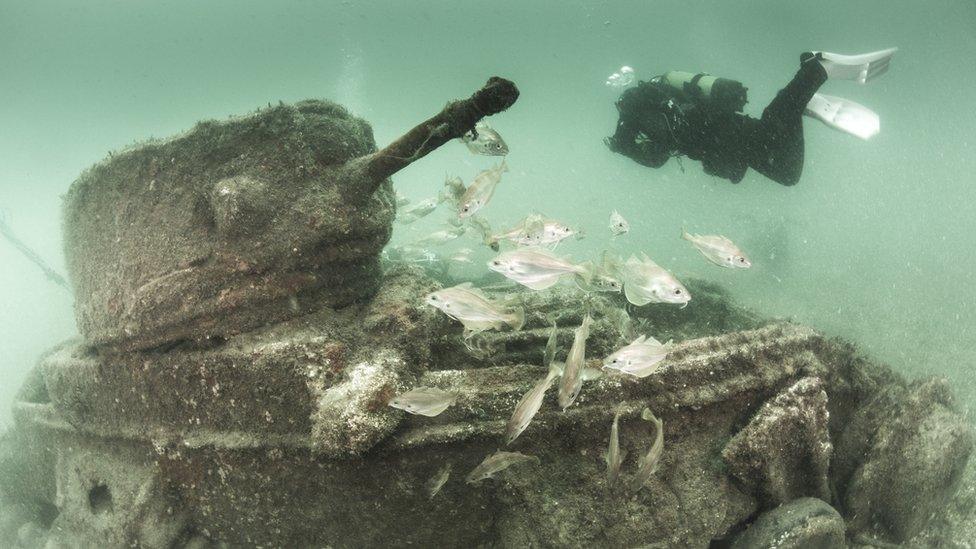Cairn unveiled for those killed in D-Day rehearsal in Devon
- Published
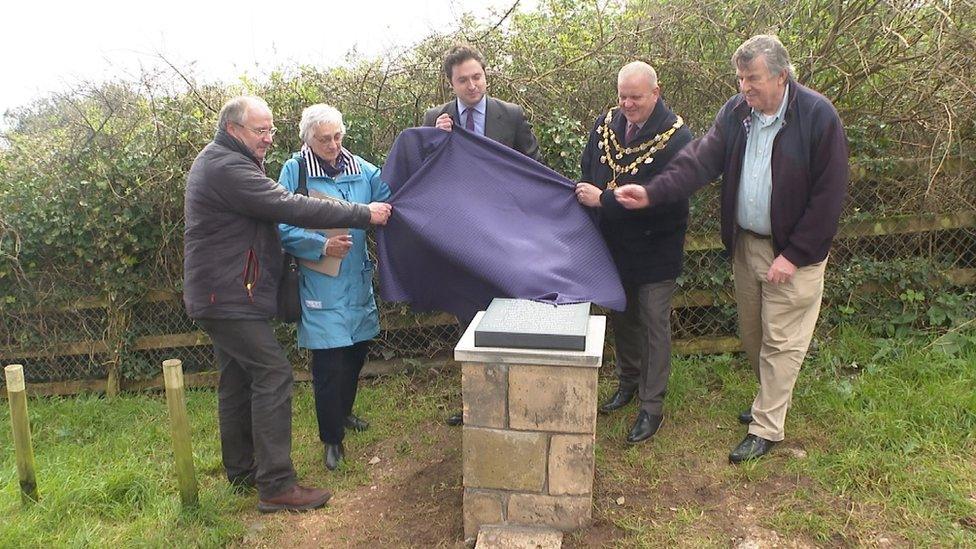
The cairn was researched and funded by Teddy Cranmer
A cairn has been unveiled in Devon honouring a group of American servicemen who died in the Second World War operation, Exercise Tiger.
The memorial was unveiled at Dartmouth on Friday afternoon, near Slapton Sands, the location of the D-Day landing rehearsals in April 1944.
The 110 victims have had no specific memorial for almost 80 years.
Organisers said they wanted a distinct monument to the one already at Torcross.
That site primarily remembers a larger number killed in an incident the following day.
The convoy involved in the D-Day rehearsal, codenamed Exercise Tiger, suffered a loss of life greater than the actual invasion of Normandy two months later.
However, the event remained a secret for decades, with US military leadership ordering a complete information blackout.
It was believed survivors who revealed the truth about what happened would be threatened with a court-martial.
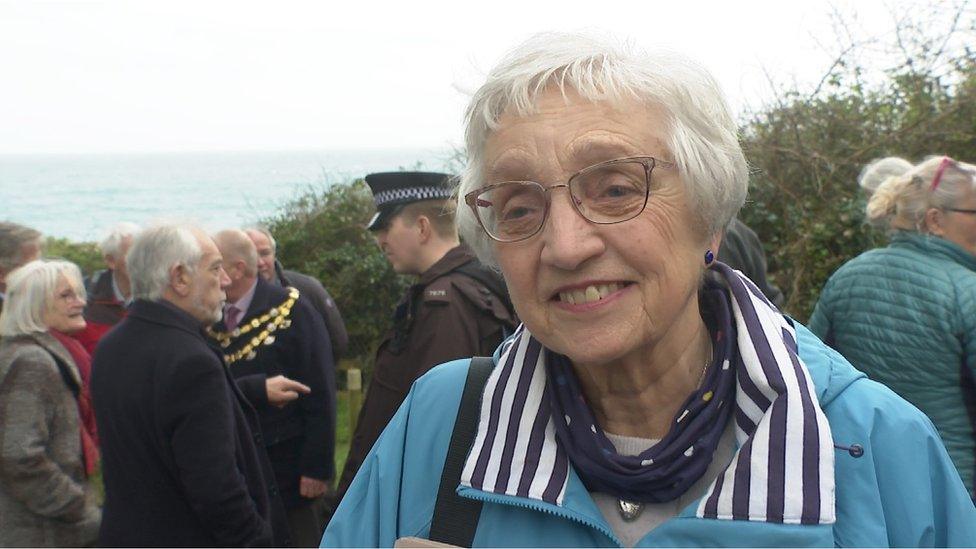
Hilary Cranmer said she was thrilled to see so many people attend the event
The monument was researched and funded by Teddy Cranmer, however he was unable to attend the event.
Hilary Cranmer attended on his behalf and said Mr Cranmer wanted to "put the record straight" and clarify what happened 80 years ago.
She explained Mr Cranmer wanted to separate it from the other monument at Torcross and to mark it as two separate events.
Mrs Cranmer said: "I am absolutely thrilled and delighted to see all these people here and I know Teddy would be as well."
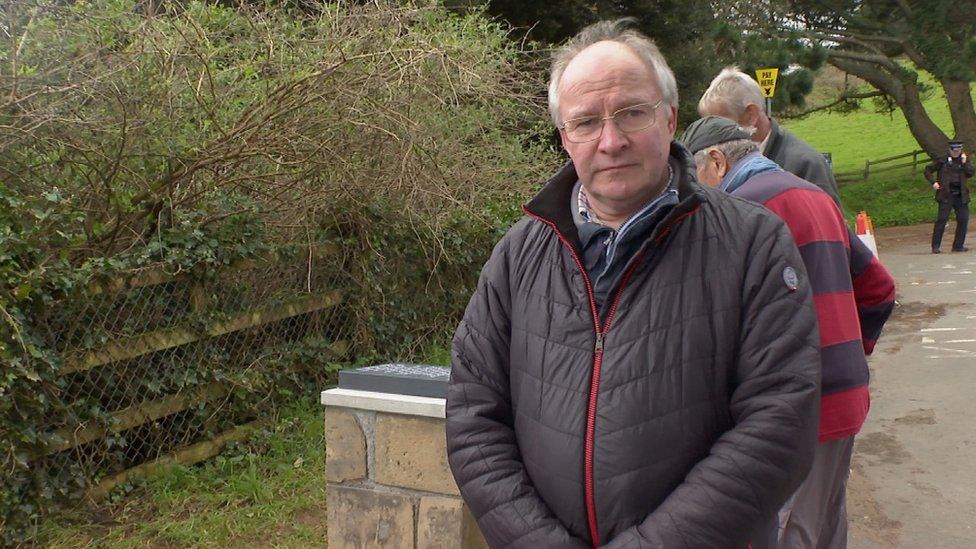
Jonathan Hawkins said Mr Cranmer was determined to have a memorial for those who lost their lives during the D-Day rehearsal
Jonathan Hawkins said the cairn was important to not forget the people who "gave their lives for us".
Mr Hawkins added: "Teddy has been determined to get this here and put up and at long last, we have achieved it."
Early on 28 April 1944, eight tank landing ships, full of US servicemen and military equipment, converged in Lyme Bay, off the coast of Devon, making their way towards Slapton Sands for the rehearsal.
So vital was the exercise that the commanders ordered the use of live naval and artillery ammunition to make the exercise as real as possible, to accustom the soldiers to what they were soon going to experience.
But a group of German E-Boats, alerted by heavy radio traffic in Lyme Bay, intercepted the three-mile long convoy of vessels.
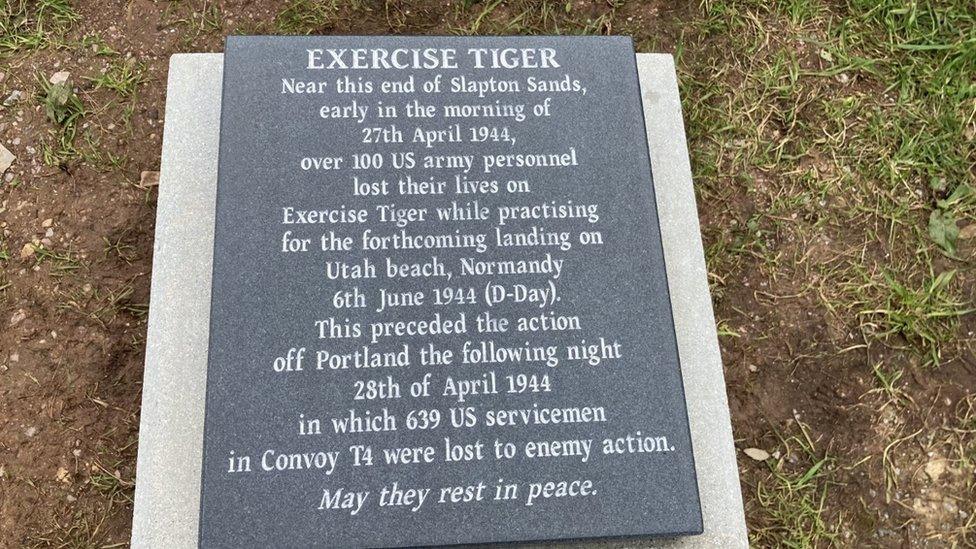
The cairn was unveiled in Dartmouth, near Slapton Sands, on April 5

Follow BBC Devon on X (formerly Twitter), external, Facebook, external and Instagram, external. Send your story ideas to spotlight@bbc.co.uk.
- Published4 April 2024
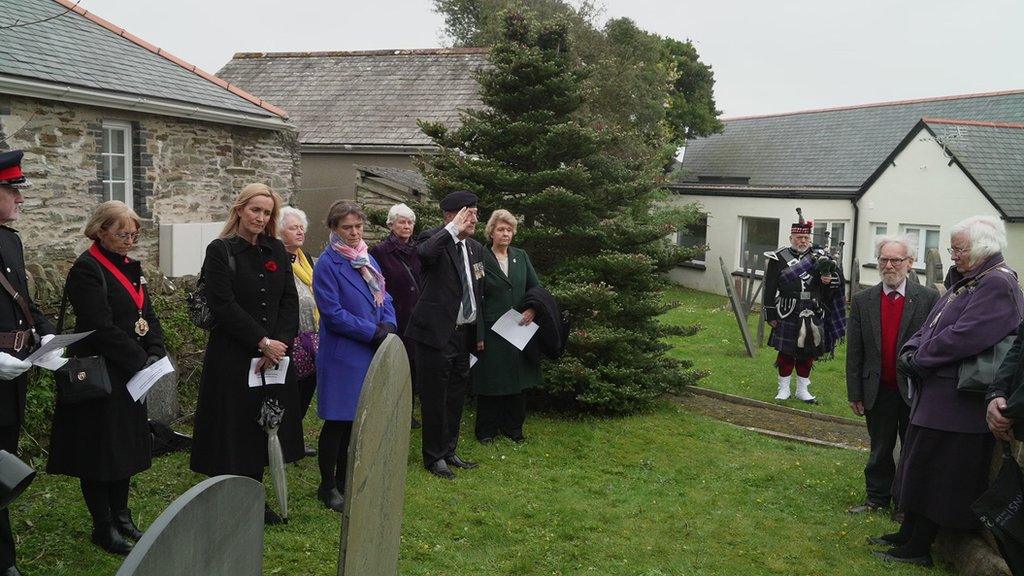
- Published17 February 2023
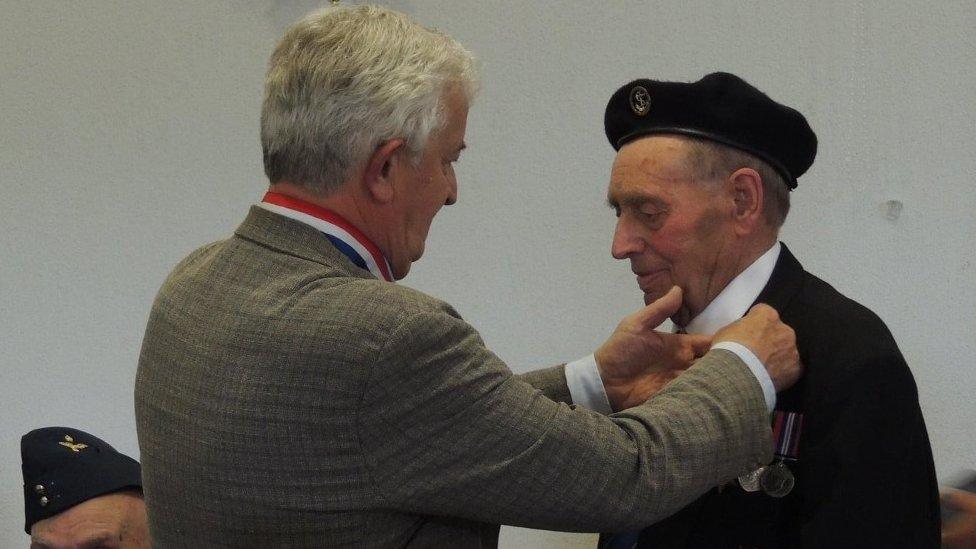
- Published3 June 2019
